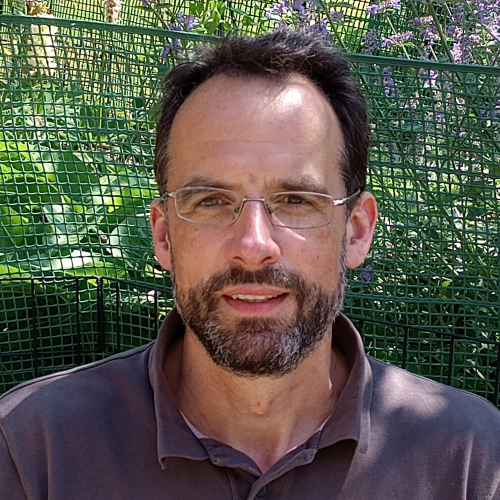
Professor Nicolai Sinai
Having received my doctorate from the Free University Berlin (2007), I arrived at Pembroke in January 2011 as a fairly clueless outsider - bewildered by some of the local jargon (what on earth is the difference between "battels" and "battles"?) but swiftly won over by Oxford's international diversity and its ethos of joint and non-hierarchical intellectual exploration. Much of my research so far has been concerned with early Islam, especially the Qur'an and the life of Muhammad, and I have published extensively on the Qur’an’s literary features, its internal chronology, and its engagement with earlier (Biblical, Christian, Rabbinic, Arabian) traditions. I am riveted by the general puzzle of embedding early Arabic texts in the multicultural, multireligious, and polyglot environment in which they were originally produced.
In tandem with my interest in approximating how the Qur'an would have been understood by its earliest recipients, I have a keen appreciation for the sophistication and philological erudition of more than a millennium of Islamic scriptural exegesis, and I am fascinated by how commentators of the Qur'an often operate at the interface of multiple scholarly disciplines, such as grammar, textual criticism, and theology. I also cultivate a strong interest in pre-modern Islamicate intellectual history, especially Arabic philosophy. My tutorials, lectures, and seminars emphasise a close reading of pre-modern primary sources and rigorous text-based argument.
since 1/2011 University Lecturer / Associate Professor / Professor at the Faculty of Oriental Studies; Fellow of Pembroke College
1/2007 – 12/2010 Researcher, Berlin-Brandenburg Academy of Sciences and Humanities (Corpus Coranicum)
2/2004 – 2/2007 Ph.D. in Arabic Studies, Free University Berlin
11/2002 – 11/2003 Ansgar Rummler Scholarship of the Institute for Advanced Studies, Berlin; assistant to the Academic Coordinator of the Working Group Modernity and Islam
2/1998 – 1/2003 M.A. in Arabic Studies and Philosophy at the University of Leipzig and the Free University Berlin; study at Cairo University
Recent publications include The Qur’an: A Historical-Critical Introduction (2017) and Rain-Giver, Bone-Breaker, Score-Settler: Allāh in Pre-Quranic Poetry (2019). A full list of publications can be found on my departmental page at https://www.orinst.ox.ac.uk/people/nicolai-sinai#/
Professor Nicolai Sinai

Having received my doctorate from the Free University Berlin (2007), I arrived at Pembroke in January 2011 as a fairly clueless outsider - bewildered by some of the local jargon (what on earth is the difference between "battels" and "battles"?) but swiftly won over by Oxford's international diversity and its ethos of joint and non-hierarchical intellectual exploration. Much of my research so far has been concerned with early Islam, especially the Qur'an and the life of Muhammad, and I have published extensively on the Qur’an’s literary features, its internal chronology, and its engagement with earlier (Biblical, Christian, Rabbinic, Arabian) traditions. I am riveted by the general puzzle of embedding early Arabic texts in the multicultural, multireligious, and polyglot environment in which they were originally produced.
In tandem with my interest in approximating how the Qur'an would have been understood by its earliest recipients, I have a keen appreciation for the sophistication and philological erudition of more than a millennium of Islamic scriptural exegesis, and I am fascinated by how commentators of the Qur'an often operate at the interface of multiple scholarly disciplines, such as grammar, textual criticism, and theology. I also cultivate a strong interest in pre-modern Islamicate intellectual history, especially Arabic philosophy. My tutorials, lectures, and seminars emphasise a close reading of pre-modern primary sources and rigorous text-based argument.
since 1/2011 University Lecturer / Associate Professor / Professor at the Faculty of Oriental Studies; Fellow of Pembroke College
1/2007 – 12/2010 Researcher, Berlin-Brandenburg Academy of Sciences and Humanities (Corpus Coranicum)
2/2004 – 2/2007 Ph.D. in Arabic Studies, Free University Berlin
11/2002 – 11/2003 Ansgar Rummler Scholarship of the Institute for Advanced Studies, Berlin; assistant to the Academic Coordinator of the Working Group Modernity and Islam
2/1998 – 1/2003 M.A. in Arabic Studies and Philosophy at the University of Leipzig and the Free University Berlin; study at Cairo University
Recent publications include The Qur’an: A Historical-Critical Introduction (2017) and Rain-Giver, Bone-Breaker, Score-Settler: Allāh in Pre-Quranic Poetry (2019). A full list of publications can be found on my departmental page at https://www.orinst.ox.ac.uk/people/nicolai-sinai#/